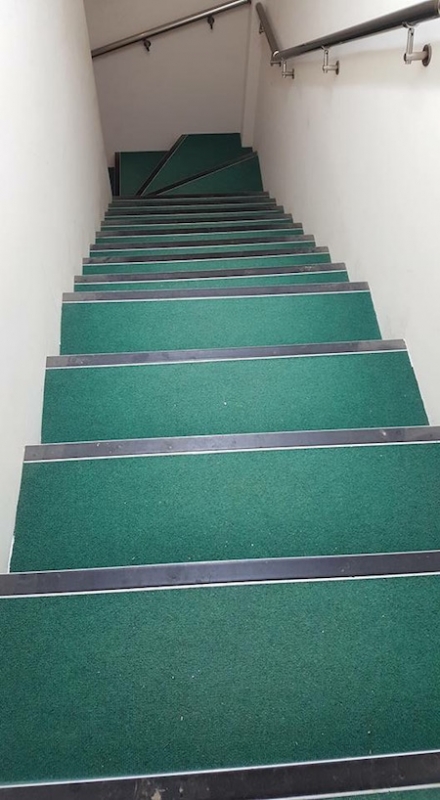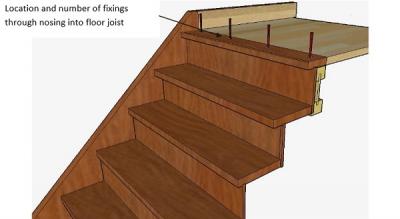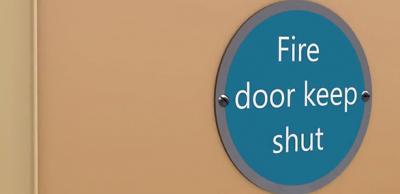And the problem with these stair treads is..?
One of our surveyors came across this stairway on site recently.

Spotted the problem yet?
It's not an optical illusion, the stair treads increase in depth (the going) as you reach the top of the flight.
Some might not view this as a problem. What's wrong with being able to fit your whole foot on the tread anyway?
The issue isn't the walking up - it's when you come down...
The potential for injury on this stairway
For anyone unsteady on their feet or partially sighted, the change to a thinner step may cause them to lose balance and fall.
The higher up the flight, the greater risk of serious injury.
That’s why you also need a full width landing at the top and bottom of a flight and can only have a door swing reducing the landing to 400mm clearance at the bottom (dwellings only).
It is also the only part of the building regulations where a head height is stipulated for domestic properties.
The 2m head height (reduced to 1.9m for loft conversions) is to prevent hitting your head at the top of the stair or on the bulkhead, and falling.
The solution
In this instance it was a concrete stair and relatively easy to overcome.
Packing pieces were used to reduce the tread depth to a consistent going with the rest of the stairs and this also gave a larger landing at the top. Depending on the type of building, the going can range from 220mm to 400mm, but the golden rule is that twice the rise plus the going must always be between 550mm and 700mm.
So for a 42 degree pitch private stair with a going of 250mm the rise must be between 150mm and 225mm.
Need to install a timber staircase properly? Read this.
Please Note: Every care was taken to ensure the information was correct at the time of publication. Any written guidance provided does not replace the user’s professional judgement. It is the responsibility of the dutyholder or person carrying out the work to ensure compliance with relevant building regulations or applicable technical standards.
This article was reviewed and updated on 10 August 2023
Sign up to the building bulletin newsletter
Over 48,000 construction professionals have already signed up for the LABC Building Bulletin.
Join them and receive useful tips, practical technical information and industry news by email once every 6 weeks.
Subscribe to the Building Bulletin




Comments
Add new comment